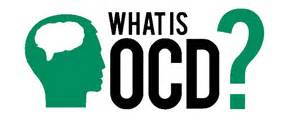514.223.5327
MAKE AN APPOINTMENTWhat is OCD?
I often hear people refer to themselves as OCD for the habits they like to repeat or for being a “control freak. OCD like many mental illnesses has a continuum to it. Whether we meet the criteria for a diagnosis depends of the number of symptoms we have and their intensity. This is why OCD and many other mental illnesses can be so misunderstood. Those of us who get uncomfortable without our comforting rituals but tolerate their absence often erroneously expect that others can tolerate this too. But someone with OCD cannot. They experience their symptoms in a much more intense and disruptive way. Their thoughts are unwanted, repetitive and persistent. The urges or images that intrusively dominate their mental energy are exhausting and cause a tremendous amount of distress.
OCD is an anxiety disorder. It is a combination of intrusive obsessions and compulsive behaviors. Some people have just the obsessions, and some have both the obsessions and the compulsions. The obsessions are unwanted and it can come in the form of repetitive thoughts, urges, or images that don’t go away. They have a phobic and superstitious quality to them and they cause a tremendous amount of anxiety. As these thoughts preoccupy the mind they build in their intensity making it extremely difficult to focus on other things. Certain behaviours are discovered that seem to take the edge off this anxiety such that the person who has OCD begins to engage in them compulsively. These compulsions increase in frequency gradually over time until they begin to interfere with daily activities. There is a vicious circuity from the anxiety to the obsessions to the compulsions in that there is a habituation to the relief following the compulsions. The intensity and duration of the relief goes down with time such that the compulsive behaviors need to be done more frequently to feel the same level of relief. Thus, the circle gets smaller and smaller as the frequency of the compulsive behaviors increase.
Compulsions may be behaviours like washing, cleaning, or ordering things in a certain way. Some are less obvious, for example some people may count things or repeat phrases in their mind. People who experience OCD usually know that obsessions and compulsions don’t make sense, but they still feel like they can’t control them. Many feel ashamed of their symptoms and struggle to ask for help.
It is estimated that 1.8% of Canadians between the ages of 15 and 64 suffer with OCD. It is equally prevalent among men and women from every background, race and ethnicity. For one third of these people, the symptoms began during childhood. It tends to be chronic with the symptoms either increasing or abating relative to the stressors that are present for the individual.
The good news is that OCD is treatable. A therapist can help to figure out and understand the patterns between your emotions, thoughts and behaviors. They can help you to learn more effective ways to regulate the anxiety and gradual exposure and response prevention can be used to stop the compulsions.
If you or someone you know needs help to recover from OCD, give us a call at 514 223 5327.
Written by: Shawna Atkins, Ph.D., OPQ.

